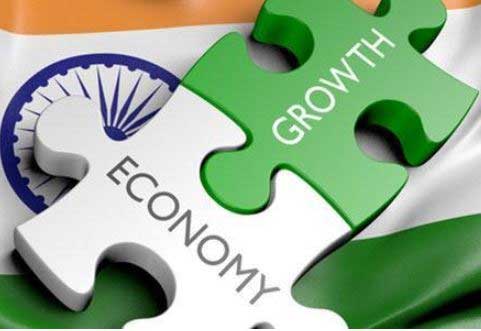New Delhi (India), September 21 — As India emerges as new global hotspot for coronavirus (Covid-19) pandemic with more than 5 million infections, several global institutions are casting doubts over its economic growth recovery.
Official figures show that gross domestic product (GDP) dipped by 23.9 per cent in the first (April to June) quarter of current financial year (2020-21) from a year ago, marking the biggest decline since 1996.
The Asian Development Bank recently cut India’s growth projection to minus 9 per cent as the virus continues to spread. Goldman Sachs estimates 14.8 per cent contraction in India’s GDP for FY21. The Organisation for Economic Cooperation and Development (OECD) sees the economy shrinking by 10.2 per cent.
India lately began easing one of the world’s strictest and biggest lockdowns that started late March. Local virus cases topped the 5 million mark this week with the death toll surpassed only by the United States and Brazil.
While a second wave of infections is being witnessed globally, India still has not been able to flatten the first wave of infection curve, said Sunil Kumar Sinha, Principal Economist at India Ratings and Research Ltd. He now projects the economy contracting by 11.8 per cent in FY21, lower than his earlier projection of 5.8 per cent.
Reserve Bank of India (RBI) Governor Shaktikanta Das said earlier this week that India’s economic recovery is likely to be gradual as the country is still reeling from the impact of Covid-19 and rising infections continue to pose a risk.
The measures taken by RBI are intended to deal with the specific situation of Covid-19 and cannot be permanent. Das said that while green shoots are emerging and businesses are getting back to normalcy, it is hard to measure the impact of Covid-19 on economy.
The RBI has taken various steps like interest rate cuts and moratorium on debt servicing. But there has to be a calibrated, cautious exit plan for the long-term, he said.
In August, the RBI said private spending on discretionary items had taken a knock, especially on transport services, hospitality, recreation and cultural activities.
Many economists say corporate profits have collapsed and put a brake on investments which will curb employment and growth in the economy.
S&P Global Ratings said this week it expects India’s economy to contract by 9 per cent in the current fiscal year ending March 31, 2021 as rising Covid-19 cases will keep private spending and investment lower for longer. Its previous forecast had put the economic hit from Covid at minus 5 per cent.
“One factor holding back private economic activity is the continued escalation of the Covid-19,” said Vishrut Rana, Asia Pacific Economist for S&P Global Ratings.
Weak demand continues to be the key bottleneck for companies as nearly 68 per cent of the companies surveyed recently by industry body FICCI and Dhruva Advisors reported this to be their biggest challenge.
In fact, 41 per cent of the companies said their sales in August were less than 50 per cent of their sales in the same month last year. Another 21 per cent said that sales in August were between 50 to 75 per cent of the sales recorded in August last year.
